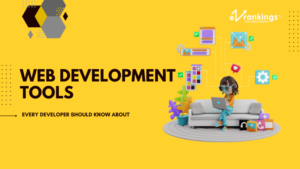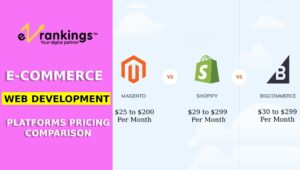Top 5 CMS For E-commerce Website

Running a successful e-commerce business involves more than just offering great products and attractive prices. A key component of long-term success lies in how efficiently a business manages its content—product listings, descriptions, customer information, promotions, and more. That’s where a reliable Content Management System (CMS) comes in.
A robust CMS helps e-commerce websites organize, update, and deliver content seamlessly across multiple channels. Whether you’re just starting out or looking to scale your store, choosing the right CMS is critical.
Top 5 CMS Platforms
Below are the top 5 CMS platforms that stand out in the e-commerce world for their features, flexibility, and performance.
1. OpenCart
OpenCart is a lightweight, open-source CMS designed specifically for e-commerce. Known for its user-friendly interface, it’s a great choice for beginners and small to medium-sized businesses. OpenCart offers a clean admin dashboard where users can easily manage products, orders, and customer data. It supports multiple languages, currencies, and over 13,000 extensions to add functionalities like payment gateways, shipping methods, and SEO tools.
Official Website: https://www.opencart.com
Key Features:
- Multi-store and multi-currency support
- Integrated shipping and tax settings
- Comprehensive reporting tools
- Easily customizable with themes and modules
- Ideal for PHP developers looking for flexibility
2. Magento (Adobe Commerce)
Magento is one of the most powerful e-commerce CMS platforms available today. Owned by Adobe, it is built for businesses looking for scalability and advanced customization. Magento offers extensive control over the look, feel, and functionality of an online store. It’s best suited for large enterprises or growing e-commerce brands that require robust performance, advanced analytics, and strong third-party integrations.
Official Website: https://business.adobe.com/products/magento/magento-commerce.html
Key Features:
- Supports over 50 payment gateways
- Advanced SEO capabilities
- Flexible product catalog and inventory management
- Mobile-optimized shopping experience
- Extensive developer community and extensions marketplace
3. Shopify
Shopify is one of the most popular cloud-based e-commerce CMS platforms in the world. Known for its ease of use, scalability, and all-in-one features, it’s ideal for both beginners and growing businesses. With hundreds of professionally designed themes, built-in SEO tools, secure hosting, and seamless payment integrations, Shopify makes it easy to launch, manage, and grow an online store without needing extensive technical knowledge.
Official Website: https://www.shopify.com
Key Features:
- Drag-and-drop store builder
- Over 100 payment gateways including Shopify Payments, PayPal, and Stripe
- Built-in marketing and SEO tools
- Mobile-optimized shopping experience
- 24/7 customer support via live chat, phone, and email
- Integration with major marketplaces and social media platforms (Amazon, Facebook, Instagram)
4. osCommerce CSS Framework
osCSS is a spin-off of the original osCommerce platform. Built on PHP and powered by CSS for styling and XHTML for markup, this CMS provides a modular structure and a clean separation of design from functionality. It’s a good choice for developers who prefer open-source systems and want to tweak every detail of their store’s frontend and backend.
Official Website: https://www.oscommerce.com
Key Features:
- Based on the stable osCommerce engine
- XHTML 1.1-compliant markup
- Uses pure CSS for layout design
- Free and open-source
- Requires manual installation and configuration (best for developers)
5. PrestaShop
PrestaShop is a widely used open-source CMS designed to manage e-commerce stores efficiently. It’s packed with features—over 300 built-in functionalities—to help merchants control product inventory, manage customer data, and track orders. PrestaShop offers a WYSIWYG (What You See Is What You Get) editor for effortless content changes and supports direct integration with PayPal and other major payment providers.
Official Website: https://www.prestashop.com
Key Features:
- Advanced inventory and order tracking
- Built-in SEO and marketing tools
- Mobile-responsive themes
- Multilingual and multi-currency support
- Integrated analytics and reporting dashboards
Final Thoughts:
Selecting the right e-commerce CMS depends on your business goals, technical knowledge, and desired scalability. If you need a simple, intuitive system to launch quickly, OpenCart or PrestaShop are great starting points. For more advanced customization and enterprise-grade features, Magento stands out. And if you’re exploring alternatives to platforms like Business Catalyst, modern SaaS solutions like Shopify may fit your needs better.
The right CMS empowers you to streamline your online operations, enhance customer experience, and grow your digital storefront with confidence. Invest time in evaluating these options and choose the one that aligns best with your current needs and long-term vision.
Need help building or optimizing your e-commerce store? Partner with EZ Rankings – A trusted Web Development Company in India. From custom CMS integrations to full-scale e-commerce development, our team ensures your online business is set up for growth.






